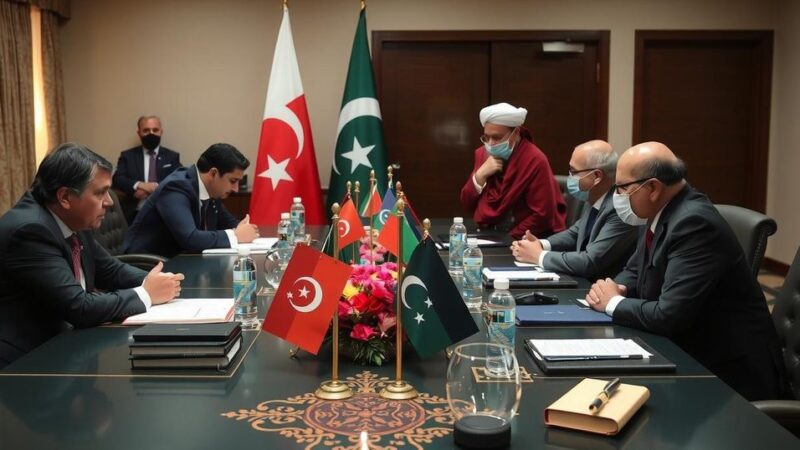Pakistani airstrikes in Afghanistan’s Paktika province on December 24 resulted in 15 deaths, including women and children. The Taliban condemned the strikes, vowing retaliation, while Pakistan claims to have targeted TTP hideouts. This incident highlights ongoing tensions and deteriorating diplomatic relations between the two countries, particularly concerning the presence of TTP militants in Afghanistan.
On December 24, a coordinated series of airstrikes conducted by Pakistani forces in Paktika province, Afghanistan, resulted in the tragic deaths of at least 15 individuals, including women and children. These strikes targeted seven villages, notably Murg Bazaar and Laman, causing extensive destruction. Reports indicate that an entire family of five was killed in Laman, with local sources attributing the attacks to Pakistani military aircraft.
In response to these strikes, the Taliban’s Ministry of Defence has vehemently condemned the actions and vowed retaliation, emphasizing their right to defend Afghan sovereignty. Enayatullah Khwarazmi, a spokesperson for the Taliban, highlighted that among the casualties were “Waziristani refugees,” underscoring the civilian toll of the airstrikes.
Pakistani officials have denied conducting the airstrikes, insisting that the intended targets were Taliban hideouts in proximity to the border. This military action is set against a backdrop of escalating tensions between Pakistan and Afghanistan, particularly regarding the presence of Tehreek-e-Taliban Pakistan (TTP) militants on Afghan soil. Pakistan has accused the Afghan Taliban of providing sanctuary to TTP combatants, a claim which Afghan authorities have strongly rejected.
The Waziristani refugees, who perished in the airstrikes, represent civilians who had already been displaced due to military operations in Pakistan’s tribal areas. Pakistan alleges that many TTP leaders seek refuge in Afghanistan under the Taliban’s protection, a claim refuted by Afghan officials, who emphasize the need to address civilian casualties. This incident follows a visit by Mohammad Sadiq, Pakistan’s special representative for Afghanistan, to Kabul for trade discussions, highlighting the potential deterioration of diplomatic relations between the two countries.
The recent airstrikes conducted by Pakistani forces in Afghanistan’s Paktika province are a reflection of the ongoing conflict and strained diplomatic relations between the two nations. Islamabad has frequently accused the Afghan Taliban of harboring TTP militants, who have been responsible for increasing violence within Pakistan. Afghanistan, on the other hand, has denied these allegations, urging for clarity on civilian casualties and showcasing the plight of displaced individuals such as the Waziristani refugees affected by military operations in the region. This situation is further complicated by the interests of both governments in establishing better trade and political relations, even amidst ongoing tensions.
The airstrikes executed by Pakistan in Afghanistan have resulted in significant civilian casualties, sparking condemnation from the Taliban and raising concerns about the escalating conflict between the two nations. With both sides accusing each other of harboring militants, the situation remains precarious, placing innocent lives at risk. As diplomatic efforts continue to unfold, it is essential for both governments to prioritize the safety of civilians while addressing security concerns.
Original Source: www.newsbytesapp.com







